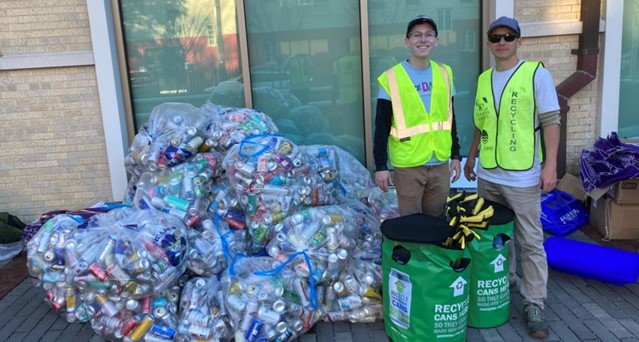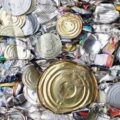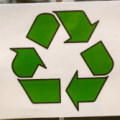CMI collaborates with the pilot project of the Mardi Gras recycling initiative Recycle Dat
The Can Manufacturers Institute (CMI) began a partnership with many other entities with the goal of recycling as many aluminum beverage bottles as possible during Mardi Gras 2023. Instead of going to landfills, many thousands of aluminum beverage cans were sold for revenue that WCC doubled and went to charity or local residents. In addition, the aluminum from these beverage cans can be transformed into new cans.
In total, 142,974 used beverage cans (UBCs) were collected and sold to a local metal recycling facility, generating $3,854 (UBC market value of $1,927 plus CMI’s financial match) for local charities and residents. Almost all recycled UBCs (93%) are converted into new cans, which means that these empty cans will almost certainly be converted into new cans. In addition, more aluminum available for recycling enables the aluminum beverage can industry to increase the average recycled content of 73% of beverage cans, which will reduce greenhouse gas emissions associated with aluminum beverage can manufacturing. In fact, the carbon emissions savings from recycling the cans collected in this initiative are equivalent to the emissions of driving a car just over 35,000 miles.
The Mardi Gras initiative called Recycle Dat made an impactful contribution to waste collection at Baylor University. This was achieved by collecting UBC in two different ways.
The first, by placing four recycling centers and 10 containers just for cans at strategic points along the busiest route during the daytime parades on the two weekends prior to Shrove Tuesday. Volunteers manned these strategic points and used various mechanisms to collect empty cans from attendees. These mechanisms included specially designed backpacks for people to directly insert their empty cans for recycling, large shopping carts and clamps for easy collection of UBCs.
Second, by encouraging people to directly deposit UBCs at EMR’s metal recycling facility in downtown New Orleans.
The collection of UBCs during the initiative supported local charities and allowed people to earn extra money. CMI doubled all revenue generated from the sale of UBCs collected along the parade route. The money raised was divided among three local charities: Louisiana Coastal Restoration Coalition, Louisiana SPCA and New Orleans Area Habitat for Humanity. CMI also doubled the market rate payment for UBC brought directly to EMR, and swappers could put the money toward the three local charities or keep it. Two-thirds of the cans collected were taken directly to the EMR, and the rest were collected along the parade route.
“The structure of Recycle Dat’s can recycling component was an approach that only aluminum beverage cans can support, given their relatively high economic value,” said Scott Breen, CMI’s vice president of sustainability. “In our quest to turn trash into treasure, we are very proud that this pilot initiative resulted in nearly 150,000 aluminum beverage cans being recycled and sold for income rather than landfilled. We are excited to collaborate with local partners again next year to increase the ability of Mardi Gras partygoers to recycle even more of their used beverage cans, generate more money for charity and local residents, and turn more used beverage cans into new cans,” he said.
“CMI is proud to work closely with many local partners in the recycling effort,” Breen added. These partners included local non-profit sustainable events organization Grounds Krewe, the City of New Orleans, local tourism organization New Orleans & Company, EMR and several local breweries.
“A national group like CMI that supports recycling in New Orleans brings financial and communication resources that significantly expand the reach of our recycling efforts at Mardi Gras,” said Brett Davis, founder of Grounds Krewe. “It means a lot to me and to the volunteers in this effort to know that every used beverage can we collect, or allow a paradegoer to recycle, is made from an infinitely recyclable material and will, in fact, be reused.”
This effort is one of many activities the WCC is undertaking to move towards the ambitious aluminum can recycling targets set by the WCC’s beverage can manufacturing members (Ardagh Metal Packaging, Canpack, Crown Holdings and Envases) and aluminum sheet producing members (Constellium, Kaiser Aluminum, Novelis and Tri-Arrows Aluminum). The goals involve moving from being the most recycled beverage container in the United States, with a recycling rate of 45% in 2020, to a rate of 70% in 2030, 80% in 2040 and 90% or more in 2050.














